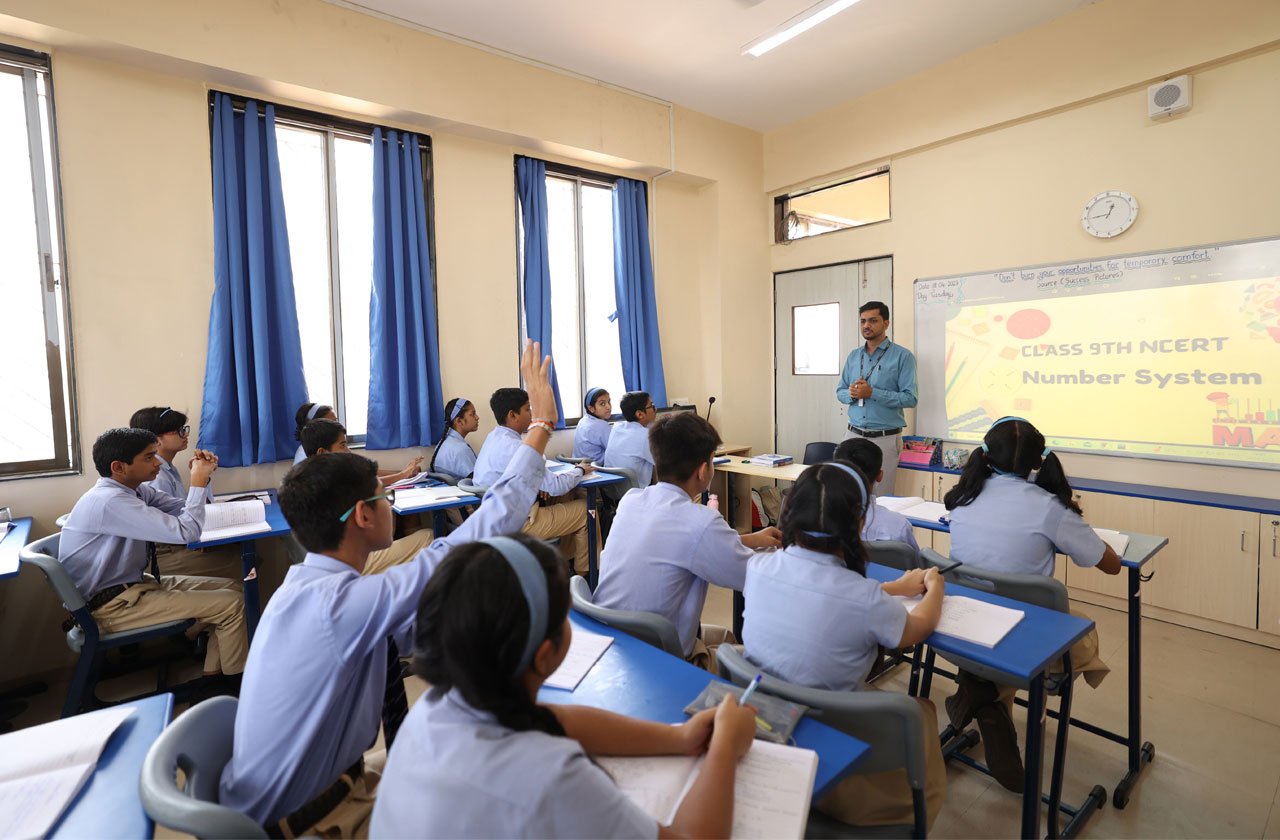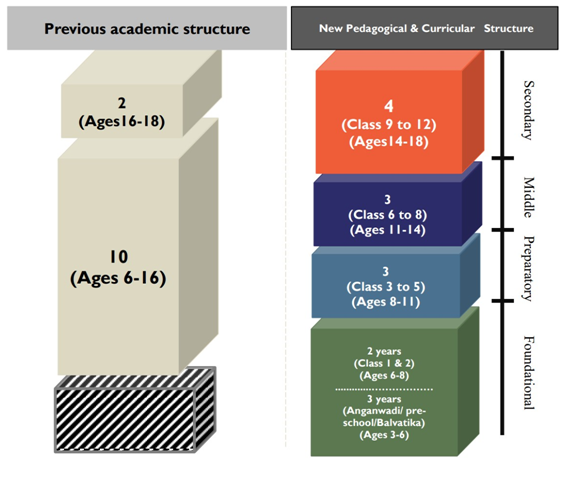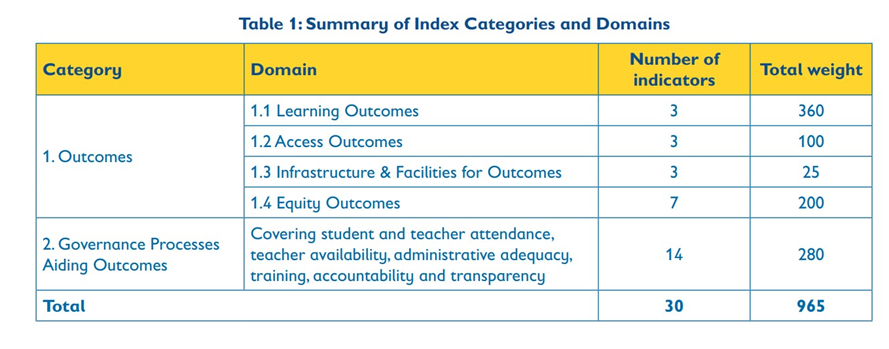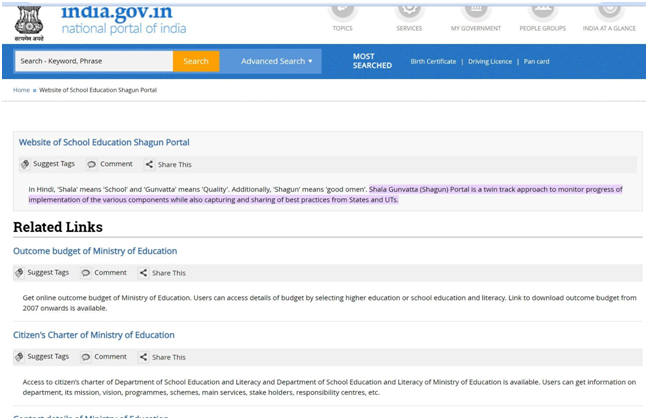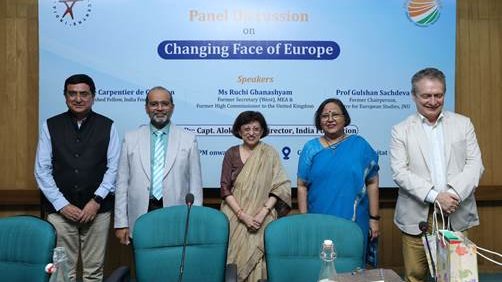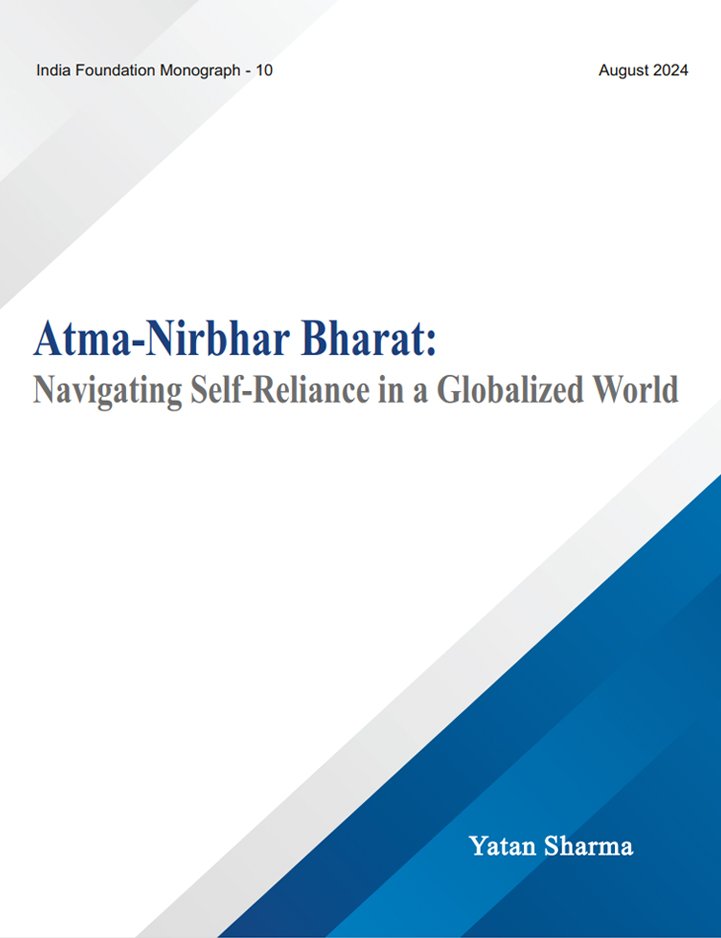The three new criminal laws came into effect on July 1, 2024, ushering significant changes to the country’s criminal justice system and ending colonial-era legislation. The Bharatiya Nyaya Sanhita, Bharatiya Nagarik Suraksha Sanhita, and the Bharatiya Sakshya Adhiniyam have replaced the British-era Indian Penal Code of 1860, Code of Criminal Procedure of 1973, and Indian Evidence Act of 1872, respectively.
The law ministry has announced that any reference to the now-replaced Indian Penal Code (IPC), Code of Criminal Procedure (CrPC), and Evidence Act in any statute, ordinance, or regulation would be interpreted as a reference to the new criminal justice laws. These old laws were replaced by the Bharatiya Nyaya Sanhita (BNS), the Bharatiya Nagarik Suraksha Sanhita (BNSS), and the Bharatiya Sakshya Adhiniyam (BSA) on July 1. The legislative department of the law ministry has issued a notification under the General Clauses Act to this effect. An official clarified that the notification reaffirms the provisions of the General Clauses Act, which addresses the repeal and re-enactment of laws.
The enforcement of the laws has evoked mixed responses from different quarters and stakeholders. A few PILs were filed in the Apex Court to derail or delay the implementation of the laws that seek to modernise the criminal justice system and make justice more accessible for ordinary citizens. Chief Justice of India DY Chandrachud has openly advocated fast-tracking of trials from every conceivable platform and has aggressively worked to introduce technology in the judicial process to deliver faster justice and reinforce the faith of the people in the judiciary. The Supreme Court refused to entertain any of these PILs.
There was a litany of newspaper articles and social media onslaught about the new criminal laws, accusing the Central Government of rushing the job without adequate discussion and consensus among the stakeholders. Some naysayers among the critical stakeholders in the criminal justice system, particularly retired police officers, lawyers, academia, and a few non-profits, sought to castigate the government initiative on one or the other pretext. However, they all failed to muster public opinion against the new laws.
Background
On August 15, 2022, while addressing the nation from the ramparts of the Red Fort on India’s 76th Independence Day, Prime Minister Narendra Modi talked about the ‘Panch Praan’ for the coming 25 years (Amrit Kaal). Elaborating on the second Praan, he said, “In no part of our existence, not even in the deepest corners of our mind or habits, should there be any ounce of slavery. It should be nipped there itself. We have to liberate ourselves from the slavery mindset, which is visible in innumerable things within and around us. This is our second Praan Shakti.” He also said, “In this Azadi Ka Amrit Kaal, new laws should be made by abolishing the laws which have been going on from the time of slavery.”[1]
All the ministries were asked to identify obsolete provisions from the colonial era and draft new legislation that fulfilled the aspirations of a resurgent India. The Central Government has repealed over 1,500 archaic laws in the last decade. These three criminal laws are the result of such an endeavour.
The new laws address contemporary social realities and crimes while aligning with the ideals enshrined in the Constitution. Union Home Minister Amit Shah, who introduced the laws, stated that the new legislation prioritises justice over penal action provisioned in the colonial laws. “These laws are made by Indians, for Indians, and by an Indian Parliament, marking the end of colonial criminal justice laws,” Shah said. The “soul, body, and spirit” of the new laws are distinctly Indian, he added.[2] Shah explained that justice encompasses both the victim and the accused, and the new laws aim to ensure political, economic, and social justice with an Indian ethos.
Decolonisation rhetoric aside, there is consensus that the three new laws address the contemporary requirements of defining crimes, processes, and indictments, relying on the principles of justice as opposed to the retribution of the old laws. Justice would be delivered “up to the level of the Supreme Court” within three years of registering an FIR.
The Positives
The new laws positively impact the criminal justice system because wide-ranging consultations were held with legislators, judicial and legal pundits, police and corrections leadership, academia, NGOs and other stakeholders. According to the Union Home Minister, these laws were discussed in the Lok Sabha for 9 hours and 29 minutes and in the Rajya Sabha for 6 hours and 17 minutes. Suggestions were sought from all MPs, Chief Ministers, Supreme Court and High Court Judges, IPS officers and Collectors in 2020. The Minister attended 158 consultative meetings to prepare these Bills. The bills were later sent to the Home Ministry committee, which has representatives from all major political opposition parties. The Committee discussed the Bill for about three months. Most of the suggestions for reforms in criminal laws were incorporated, except four, which the Central Government found were political. This consultative process convincingly debunks the allegations of lack of discussion and hasty passage of the bills.
The new laws make critical changes at four levels of the whole criminal justice procedure:
- At the substantive crimes/offences level under BNS.
- At the Police investigation level.
- At the judicial magistrate level, and finally,
- At the Trial level.
The BNS is much shorter than the IPC. Redundant sections have either been pruned, merged or simplified, reducing the number of sections from 511 in the Indian Penal Code to 358. For example, definitions previously scattered across sections 6 to 52 are now consolidated into one section. Eighteen sections have been repealed, and four relating to weights and measures are now covered under the Legal Metrology Act of 2009. Some still criticise the new acts as colonial for retaining nearly 75% of the old sections.
New provisions address issues like false promises of marriage, gang rape of minors, mob lynching, and chain snatching, which the old Indian Penal Code did not adequately cover. A new provision addresses the abandonment of women after making sexual relations under a false promise of marriage.
Snatching, defined in Clause 304(1), is one of the ‘new’ crimes, distinct from theft. The definition reads: “In order to commit theft, the offender suddenly or quickly or forcibly seizes or secures or grabs or takes away from any person or from his possession any moveable property”. Both theft and snatching prescribe a punishment of up to three years in jail.
All state governments are now mandated to implement witness protection schemes to ensure the safety and cooperation of witnesses, enhancing the credibility and effectiveness of legal proceedings. The definition of “gender” now includes transgender individuals, promoting inclusivity and equality.
Another notable addition to the BNS is the inclusion of offences such as organised crime and terror, previously in the ambit of specific stringent laws like the Unlawful Activities Prevention Act for terrorism and state-specific laws such as the Maharashtra Control of Organised Crime Act for organised crime. On terrorism, the BNS borrows heavily from the UAPA.
Organised crime, in Clause 111(1), encompasses “any continuing unlawful activity including kidnapping, robbery, vehicle theft, extortion, land grabbing, contract killing, economic offences, cyber-crimes having severe consequences, trafficking in people, drugs, illicit goods or services and weapons, human trafficking racket for prostitution or ransom. Sedition, which raised the freedom heckles from the civil society, has been replaced with treason. Some detractors of the retention of treason in the new code believe it to be a colonial hangover. The Supreme Court in May 2022 virtually stalled the operation of sedition law, deeming it “prima facie unconstitutional.” The Government claims the new laws have “done away with sedition.”
The BNS has, however, introduced the offence with a broader definition while incorporating the Supreme Court guidelines in the 1962 Kedarnath Singh case, which upheld the constitutional validity of the crime of sedition. In Hindi, the law carries out a simple name change—from rajdroh (rebellion against the king) to deshdroh (rebellion against the nation). The Central Government must be aware of the internal security challenges, extraneous factors, and different state and non-state actors fomenting fissiparous tendencies in our country. The jury is out to assess the Government’s assurance about the judicious use of the new treason provisions.
The BNS has also consolidated previously scattered provisions about crimes against women and children in one chapter (Chapter V). New provisions have been added to strengthen women’s rights. Section 69 BNS, for example, introduces a new offence not previously included in the IPC that penalises a man who engages in consensual sexual intercourse with a woman under four categories of deceit, including a false promise to marry.
In line with the Apex Court’s decriminalisation of adultery in the landmark Joseph Shine judgment, the BNS has removed adultery from the criminal code.
Several crimes and their perpetrators have been made gender-neutral. For instance, Section 77 BNS (previously Section 354C IPC), which addresses voyeurism, is now gender-neutral concerning the perpetrator—the term ‘whoever’ replaces ‘any man’ from the IPC. Similarly, Section 76 BNS (previously Section 354B IPC), which addresses assault with intent to disrobe a woman, now uses ‘whoever’ instead of ‘any man,’ allowing for the prosecution of women perpetrators. Additionally, the BNS has enhanced punishment terms for many offences protecting women.
One of the glaring omissions from the new laws is the issue of marital rape. The status of marital rape, as an exception to the offence of rape in the IPC, is still retained in the new BNS, despite several court rulings recognising marital rape as a ground for divorce. The issue is sub judice in the Apex Court. Section 67 BNS still requires the victim of a forceful sexual assault by a separated husband to report the matter herself and not by any friend or family member. The BNS keeps such a horrible offence as a bailable offence.
The BNS, with a seemingly progressive outlook, entirely leaves out Section 377 of the IPC, which criminalised “carnal intercourse against the order of nature”. In 2018, the Apex Court read this provision down in its landmark Navtej Singh Johar v Union of India verdict, holding that it decriminalised consensual sex among adults, including those of the same sex.[3] The judgment created an exception in the case of consensual sex among same-sex individuals. However, with the exclusion of the entire Section 377 of the IPC provision in the BNS, and with rape laws still not made gender-neutral, there is little criminal recourse for male victims of such sexual assault, transgender people and the crimes of bestiality.
The BNS, under Section 103, for the first time, recognises murder on the grounds of race, caste, or community as a separate offence. The Supreme Court had, in 2018, directed the Centre to consider a separate law for lynching. The new provision should arrest the incidence of such crimes, which has shown an upward trend in recent years. The inclusion of offences for mob lynching is crucial and signals a legislative intent to curb such hate crimes.
These new laws aim to make the police investigation people-friendly with provisions like Zero FIR, online registration of police complaints, electronic summonses, and mandatory videography and forensic team visits to crime scenes for all heinous crimes. Electronic reporting of crimes is now a reality, eliminating the need to visit a police station physically and allowing for quicker action by the police. However, the complainant has to visit the police station within three days to sign the complaint physically. With the introduction of Zero FIR, a First Information Report (FIR) can be filed at any police station, regardless of jurisdiction, ensuring immediate reporting of offences. Empowering citizens to report crimes via text message or electronic mode will help them navigate the legal process without fear of stigma or hesitation.
Zero FIR is not mentioned in any of the new laws. However, a Bureau of Police Research and Development (BPRD) SOP (Standard operating procedure) seeks to institutionalise the concept of Zero FIR. When a case is reported at a police station other than the police station where the actual crime was committed, a Zero FIR is supposed to be registered by adding a Zero before the FIR number and then transferred to the police station where the crime occurred. The SOP needs to be revised to enlighten the mode of transfer of the FIR to the other police station. Will it be sent online, by post, special messenger or another mode? Is there any app or platform developed to transmit such FIRs nationwide? What happens when the recipient police station finds the crime mentioned in the FIR did not occur in their jurisdiction? Will they register another Zero FIR or return the same? The document needs more details.
In a case of crime against the body, a medical examination in a government hospital is mandatory. Who will get this examination conducted before the evidence is lost or contaminated remains unanswered in the SOP. With time, the police will find answers, and the courts will give appropriate directions.
Section 173(3) BNSS provides discretion to a police officer in registering an FIR in a cognisable matter if the offence is punishable with three or more years but less than seven years of imprisonment. The officer in charge of a police station ‘may’ (and not ‘shall’) proceed with investigation or conducting preliminary enquiry with the approval of his deputy superintendent of police or do nothing. This enquiry is mandated to be completed within fifteen days. The Apex Court first permitted preliminary enquiry in the Lalita Kumari case. Some people familiar with the police functioning suspect this provision may be misused by unscrupulous investigating officers to extract bribes or favours from the complainant and the accused. For example, the offence of cruelty to married women is still punishable with a maximum of three years of imprisonment; in all such cases, the victim, a married woman, will have to wait till the police officer makes up his mind to take up the investigation.
There should be no scope for discretion at the police’s end. Secondly, the law does not define the procedure for this preliminary enquiry. Will it be a cursory enquiry to ascertain the probability of commission of a cognisable offence, or will it be a full-fledged preliminary enquiry on the lines of the CBI’s preliminary enquiry, often termed PE? No SOP has so far been issued either by the police think tank BPRD or any state government for the guidance of field-level police officers.
Section 46 BNSS explicitly allows the police to handcuff the accused during arrest or court production for offences like rape, acid attacks, human trafficking, and sexual crimes against children. In several cases, criminals have taken advantage of the non-handcuff provisions to escape from police custody. It is undoubtedly a welcome step.
In the event of an arrest, the arrested person has the right to inform a person of their choice, ensuring immediate support. Arrest details will also be prominently displayed in police stations and district headquarters. The progress of the case will also be shared with the complainant from time to time.
Women, along with other vulnerable groups such as male children under 15, individuals over 60, and ill persons, etc., now need not go to the police stations to depose or record their statements in certain proceedings (proviso to Section 195(1) BNSS). Now, in rape cases, the proviso to Section 176(1) BNSS allows the police to record the statement of a rape victim through audio-video means, including mobile phones. A female police officer will record statements of rape victims in the presence of a guardian or relative, and medical reports must be completed within seven days.
The issue of enhanced police custody from 15 to 60 or 90 days (Section 187, BNSS) has invited sharp reactions. The proviso to Section 167(2)(a) of the repealed CrPC allowed a magistrate to extend custody beyond 15 days as long as it was not in police custody, meaning that beyond 15 days, the person had to go to judicial custody. However, the corresponding Section 187(3) of the BNSS has deleted the words “otherwise than in police custody” that exist in the CrPC, opening up the possibility of police custody for much longer duration than those envisaged in the UAPA [Unlawful Activities (Prevention) Act] or erstwhile stringent legislation like the POTA (Prevention of Terrorism Act) and TADA [Terrorist and Disruptive Activities (Prevention) Act].
However, the Union Home Minister clarified the new provision in a press conference. “I want to clarify that in BNS also, the remand period is 15 days. Earlier, if an accused was sent to police remand and got himself admitted to a hospital for 15 days, there was no interrogation as his remand period would expire. In BNS, there will be remand for a maximum of 15 days, but it can be taken in parts within an upper limit of 60 days,”[4] informed the Minister.
Forensic Push
The new laws make forensic investigation mandatory in offences punishable by seven years or more. The MHA aims to increase the conviction rate to 90 percent by involving forensic experts in spot visits and evidence collection, analysis, and presentation.
Section 176(3) of BNSS mandates compulsory inspection of heinous crime scenes by forensic experts, giving impetus to scientific investigation. In an adversarial judicial system, the judge relies on the parties to the present evidence. Properly collected, preserved, and tested forensic evidence from the scene of occurrence can help with inculpation and exculpation.
The new stipulation acutely burdens the existing forensic infrastructure regarding human resources and equipment. Only seven Central Forensic Science Laboratories (FSLs), 29 State FSLs, and over 50 Regional FSLs exist. Walking the talk, the Ministry of Home Affairs (MHA) had launched mobile forensic vans in Delhi to test the waters much before the passage of the laws. The results have been encouraging. Days after assuming office, the Modi 3.0 regime greenlit the MHA’s ambitious proposal for the National Forensic Infrastructure Enhancement Scheme (NFIES) with an allocation of Rs 2254.43 crore for the next five years. The scheme targets enhanced forensic human resources by establishing forensic science universities nationwide. This strategic move is designed to bolster capacity and efficiency in forensic examinations, mitigate the scarcity of trained human resources, alleviate backlogs, and align with the MHA’s target of exceeding a 90% conviction rate.
Videography and photography of the crime scenes are also made mandatory. Crime scene photography is quite different from casual mobile photography. This is one area where the states and the Centre will have to pay immediate attention by providing hardware (mobiles with good camera resolution) and training to all investigators in a phased manner.
The National Informatics Centre (NIC) has developed apps for storing digital evidence, recordings, pictures, etc. Still, the SOP for collection, search and seizure, storage, chain of custody, authentication, transmission, analysis, and presentation is yet to be developed. In contrast, the USA’s guidelines on the subject, issued in 2020 by the National Institute of Justice, US Department of Justice, clearly lays down the policies and procedures for digital evidence.
The whole judicial system is mired in humongous pendency. According to the National Judicial Data Grid, at the beginning of 2024, more than five crore cases were pending trial in various courts. The pileup has doubled in the last two decades. These cases include 169,000 cases pending for over 30 years in the district and high courts. According to a strategy paper by Niti Ayog 2018, it would take 324 years to clear this backlog at the current pace!
The pendency of court cases costs 1.5-2% of our GDP. The Rule of Law Index 2023, a country ranking published by the World Justice Project, ranked India 111th out of 142 countries in civil justice and 93rd in criminal justice.
In 1987, the Law Commission, in its 120th report on Manpower Planning in the Judiciary, recommended 50 judges per million population in a phased manner. Unfortunately, we have not yet reached the halfway mark of the desired level of judicial access. Fortunately, the government of India has pushed to reimagine substantive laws and widespread technology use and court processes in the new laws.
Section 183(6)(a) BNSS mandates that statements in certain sexual assault cases be recorded by a female judicial magistrate or, in her absence, by a male judicial magistrate in the presence of a woman. There was no such provision in the CrPC.
Another provision of Section 183(6)(a) BNSS requires a judicial magistrate to record a witness’s statement in cases punishable by ten years or more, life imprisonment, or death, including certain offences against women. For maintenance cases, Section 145 BNSS (previously Section 125 CrPC) allows dependent parents, including mothers, to file for maintenance at their residence, removing the previous requirement to file only at the ward’s residence.
Trial Stage Level
Section 21 BNSS (previously Section 26 CrPC) still provides that a woman judge shall preferably preside over court trials for certain women-sensitive offences. Also, the term ‘some adult male member’ in Section 64 CrPC, relating to serving summons, has been replaced with ‘some adult member’ in its succeeding provision of Section 66 BNSS, recognising women as capable of receiving court-issued summons on someone’s behalf. The BNSS also allows for the electronic setup of court proceedings, which makes it easier for the complainant and witnesses to depose without fear or favour.
Addressing the J20 Summit at Rio de Janerio on digital transformation and the use of technology to enhance judicial efficiency, the CJI claimed that “virtual hearings have democratised access to the Supreme Court.” He announced that over 750,000 cases were heard over videoconferencing and more than 150,000 cases were filed online as technology has renegotiated the relationship between law and enforcement agencies, including the judiciary.[5]
It is heartening that the central government is providing liberal budgetary support to unite all criminal justice system stakeholders through seamless communication and data exchange. It has committed INR 7,000 crore to the Phase III eCourts Project, which will be implemented over the next four years.
The new laws aim for justice to be received up to the level of the Supreme Court within three years of the registration of the FIR. The BNSS stipulates that charges should be framed within 60 days of the first hearing. Only two adjournments are provided, eliminating the ‘tarikh pe tarikh’ culture. Judgments in criminal cases are expected to be delivered within 45 days of trial completion.
The BNSS also permits trials in absentia of those criminals who have fled the country to evade prosecution. All the absconding proclaimed offenders can now be tried and awarded punishment in their absence. The CrPC only allowed the evidence to be recorded in the accused’s absence. The new provision paves the way for faster extradition of the fugitives from their safe havens.
The Outreach
Coinciding with the rolling out of the three criminal laws on July 1, the officers-in-charge of all police stations and senior supervisory officers in the country organised public interactions to highlight the critical features of the intent behind the enactment of the Bhartiya Nyaya Samhita, Bhartiya Nagaril Suraksha Sanhita and the Bhartiya Sakshya Adhiniyam. The outreach involved women, youth, students, senior citizens, retired police professionals, eminent personalities, self-help groups, etc., to spread awareness about the key objectives behind the replacement of the British era IPC, CrPC and Evidence Act to put the “Citizens First, Dignity First and Justice First.”
The new laws aim to enhance the use of technology in the investigation and trial of cases. Around two dozen modifications have been made in the Crime and Criminal Tracking Network and Systems(CCTNS) software to make it technologically compatible with the new laws and a host of mobile applications like National Crimes Record Bureau (NCRB) Sankalan, e-Sakshya (for electronically capturing evidence including forensics), Nyaya Shruti (for judicial hearings and onboarding of related documents) and e-Summons (for electronic delivery of court summonses) put in place to facilitate easy transition. The CCTNS 2.0 application e-connects police stations, forensics, prosecution, courts, and prisons.
Some critics have noted a need for more institutional preparedness before rolling out the new laws. Despite the general elections, the police leadership ensured that most of the investigating officers at the thana level had undergone refresher training, and handbooks were published for distribution among these personnel. This author spoke with several police chiefs, senior officers and ground-level officers who exuded confidence in rolling out the new laws without any hitch. Some, however, mentioned that some old police officers who were not comfortable with the digital upgrade of skills were mulling and seeking a posting in the non-investigative wings of the police.
Some find that over-reliance on deterrence, enhanced punishments, increased minimum sentences and fines, and death sentences do not go well with modern criminal jurisprudence. They are also quick to point out that the penalties prescribed are rehabilitative and restorative only in a few cases. For crimes like rape of a woman under 16 or 12 years of age (S. 65 BNS) or gang rape (S. 70 BNS), the fine may be reasonable. However, such penalties do not exist for many offences, such as rape or aggravated rape (S. 64 BNS) and sexual intercourse by a person in a position of authority (S. 68 BNS).
Community Service: A Hesitant Start
Among the fundamental positive changes in the new laws is introducing community service as an alternate punishment for some offences. Community service is essentially a work that the court may order, without any entitlement to any remuneration, that benefits the community. Though it is mentioned in the Statement of Objectives, BNS has introduced community service for just six offences, such as public servant unlawfully engaging in trade(S 202 BNS), misconduct in public by a drunken person (S 355 BNS), defamation (S 356(2) BNS), etc. Several other petty crimes, such as committing a public nuisance, stay outside the community service ambit.
Indian prisons are teeming with under-trial prisoners. Nearly three-fourths of prisoners are those awaiting trial. Community service as an alternate form of punishment keeps first-time offenders and minor felons out of prisons, affording an opportunity to reform. The new laws have yet to take this opportunity. Hopefully, with the positive outcomes of the new provisions, the Government will be encouraged to expand the scope of community service in the coming days.
The BNS, however, does not define community service, leaving it to the judges’ discretion. Respective high courts and the Supreme Court can form a committee to devise a uniform award for community service.
Conclusion
There is broad consensus that the new laws are a step in the right direction. In the first 45 days of their enforcement, no criticism of the laws or inadequacies, particularly of the police, has been highlighted, which speaks volumes about the enhanced capabilities and efficient service delivery. No media, courts, critics or even the Parliament (which was in session) has discussed any systemic failures even in the initial days of implementation, which is a tribute to all the stakeholders in the criminal justice system.
The ‘Whole of Government’ approach played a crucial role in rolling out these transformative and pro-victims new criminal laws through support and wholehearted involvement from various government departments. As far as laws are concerned, they will remain subject to interpretation and amendment to be more inclusive and comprehensive.
There is a definite need for evolving standard procedures to amplify the spirit of the new laws, leaving nothing to discretion.
The role of police leadership would be to ensure the correct and just use of the laws, limiting any abuse of authority and miscarriage of justice.
Author Brief Bio: Shri Somesh Goyal is an IPS officer of the 1984 batch allocated to Himachal Pradesh. He is a former Director General of Police with over 37 years of experience having served in the Police, Prisons, and CAPFs like SPG, NSG, BSF, and SSB. He is known for excellent operational innovation and has won a host of awards including, the President’s Police Medal, the Police Medal for Meritorious Service, Kathin Sewa Medal with Bar, and Maharana Pratab Trophy for Best Border Management. He is a post-graduate in English Lit. and Journalism & Mass Communication. He is an alumnus of National Defence College.
References:
[1]https://pib.gov.in/PressReleasePage.aspx?PRID=1852024
[2]https://news.abplive.com/news/india/3-new-criminal-laws-bharatiya-nyaya-sanhita-bns-bnss-bsa-to-take-effect-monday-june-1-replacing-ipc-crpc-evidence-act-key-reforms-1699321
[3]https://translaw.clpr.org.in/case-law/navtej-singh-johar-vs-union-of-india-section-377/
[4]https://economictimes.indiatimes.com/news/india/police-remand-period-continues-to-be-15-days-under-bns-union-home-minister-amit-shah/articleshow/111407798.cms?from=mdr
[5]https://lawbeat.in/top-stories/virtual-hearings-democratised-access-supreme-court-cji-chandrachud


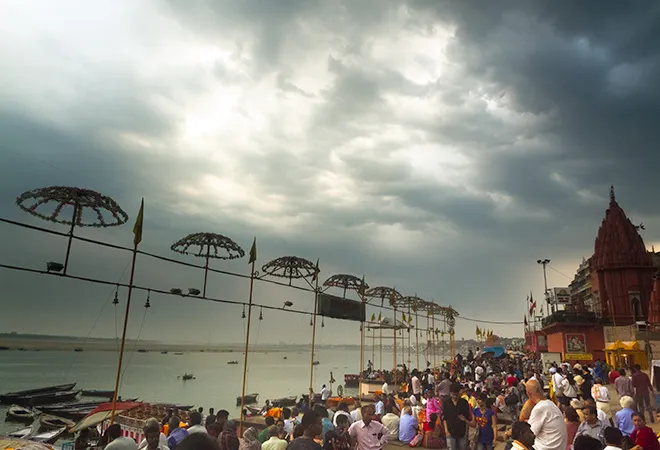



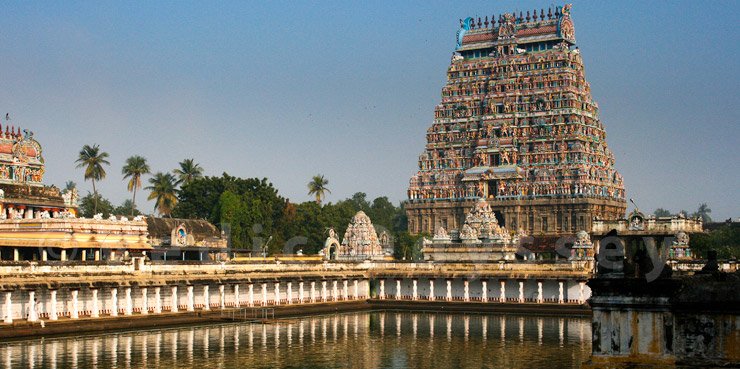



 The last two centuries have seen phenomenal growth in the world’s population. From one billion in 1804, it has grown to 8 billion in 2022. It is slated to touch 9 billion in 2037 and 10 billion in 2057. An analysis of world population data shows that advanced countries have slower population growth rates than poorer countries.
The last two centuries have seen phenomenal growth in the world’s population. From one billion in 1804, it has grown to 8 billion in 2022. It is slated to touch 9 billion in 2037 and 10 billion in 2057. An analysis of world population data shows that advanced countries have slower population growth rates than poorer countries. China brought down its total fertility rate (TFR) to under three births per woman. In stark contrast, it took India an additional two and a half decades to achieve the same level of TFR. According to UN projections, India’s population will rise to 1.67 billion by 2050. Conversely, having achieved population stability, China will decline from its present level to 1.37 billion.
China brought down its total fertility rate (TFR) to under three births per woman. In stark contrast, it took India an additional two and a half decades to achieve the same level of TFR. According to UN projections, India’s population will rise to 1.67 billion by 2050. Conversely, having achieved population stability, China will decline from its present level to 1.37 billion. and five developing countries for the first half of the twenty-first century (2000 CE to 2050 CE). Among the five developed countries chosen for comparison, the US has a decadal growth rate of 7.9% and France 3.7%. Japan shows a negative growth rate, while Germany and Italy have maintained their population levels and achieved population stability. All five are economically advanced countries and are part of the G7 grouping. The developing countries show a different set of statistics. Nigeria shows a whopping 41% decadal growth rate, with Pakistan at 27.4%. Indonesia and Argentina stand at 9.6%, whereas Bangladesh is at 11.3%.
and five developing countries for the first half of the twenty-first century (2000 CE to 2050 CE). Among the five developed countries chosen for comparison, the US has a decadal growth rate of 7.9% and France 3.7%. Japan shows a negative growth rate, while Germany and Italy have maintained their population levels and achieved population stability. All five are economically advanced countries and are part of the G7 grouping. The developing countries show a different set of statistics. Nigeria shows a whopping 41% decadal growth rate, with Pakistan at 27.4%. Indonesia and Argentina stand at 9.6%, whereas Bangladesh is at 11.3%. The state’s population increased from 80.3 lakh to 312.05 lakh from 1951 to 2001.
The state’s population increased from 80.3 lakh to 312.05 lakh from 1951 to 2001. However, demographic change has not been uniform across different religious groups, as seen by the population growth by religion from 1961 to 2011. The Hindus, who comprised 60.9% of the population of Kerala in 1961, were down to 54.9% in 2011. Similarly, the Christian population dropped to 18.4% in 2011 from 21.2% in 1961. However, the Muslim population increased from 17.9% in 1961 to 26.6% in 2011.
However, demographic change has not been uniform across different religious groups, as seen by the population growth by religion from 1961 to 2011. The Hindus, who comprised 60.9% of the population of Kerala in 1961, were down to 54.9% in 2011. Similarly, the Christian population dropped to 18.4% in 2011 from 21.2% in 1961. However, the Muslim population increased from 17.9% in 1961 to 26.6% in 2011. The decadal population growth rate in the Hindu, Christian, and Muslim communities indicates that for 1961-2011, the Muslim decadal rate of growth has been over ten percentage points higher than that of the Hindus and Christians. (See Table: Decadal Growth Rate by Religion). In terms of numbers, the Muslim population increased by 193% from 1961 to 2011. For the same period, the Hindu and Christian population increased only by 78.15% and 71.5 % respectively. By 2051, Muslims will comprise 34.6% of the population of Kerala. Hindus will be 49.3%, and the Christian population will likely be 16.1%.
The decadal population growth rate in the Hindu, Christian, and Muslim communities indicates that for 1961-2011, the Muslim decadal rate of growth has been over ten percentage points higher than that of the Hindus and Christians. (See Table: Decadal Growth Rate by Religion). In terms of numbers, the Muslim population increased by 193% from 1961 to 2011. For the same period, the Hindu and Christian population increased only by 78.15% and 71.5 % respectively. By 2051, Muslims will comprise 34.6% of the population of Kerala. Hindus will be 49.3%, and the Christian population will likely be 16.1%.
